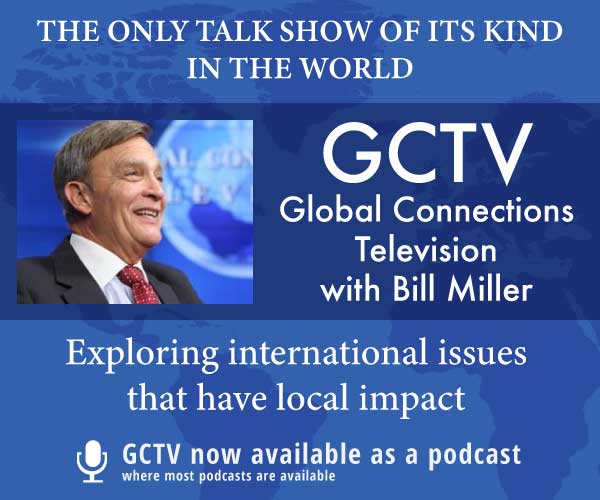
“It would be useless to suggest a non-American”
Welcome to our first issue of Blue Smoke, a new monthly newsletter that will shine a spotlight on senior appointments at the United Nations. This edition’s title is a quote from a senior UN figure in response to a question about who is standing to be the next World Food Programme Executive Director.
This is a joint project coordinated by the United Nations Association-UK and delivered in media partnership with PassBlue. Read more about who we are and how we work.
At the moment, senior-level appointments are dangerously opaque, and information about them is only available in fragments. We don’t wish to further politicize appointments: UN officials should be independent civil servants, not subject to political pressure from member states. However, the current lack of public scrutiny over how the UN’s top jobs are appointed does not mean the absence of political pressure, rather, that this pressure goes unchecked. When it comes to senior public-facing roles within the Organisation, there is legitimate public interest in knowing how these people came to hold those posts.
We are going to leave the regular coverage to PassBlue, but this newsletter will consolidate and compile information that has been reported elsewhere and provide commentary as we push for greater transparency in appointments. Have a look at our website for all the information we have compiled so far.
Coming up soon
Here’s what we’re expecting in the next month or so
Executive Director of the World Food Programme: David Beasley’s successor will need to start by April so we shouldn’t have long to wait. All that is required is for the UN Secretary General and the Director General of the UN Food and Agriculture Organisation to agree a name. The last five appointees have been Americans and the Secretary-General is apparently uninterested in challenging this convention. Word has it Cindy McCain is the clear frontrunner, with David Lane also in the mix. Other names that have been mentioned include Samantha Power and Kathy Calvin but it is not clear that either actually applied. If Guterres chooses another American, he will show that once again his “open” call for applications broadcast globally via the UN’s vacancies page (applications deadline was 30 Jan) was window dressing.
The Director General of the International Organisation of Migration is elected by the IOM’s members. It is usually an American who lands the post, but in 2018 the Portuguese candidate Antonio Vitorino beat a controversial Trump pick. Vitorino is up for re-election in June and traditionally, Directors General are given a clear run if they want a second term. Not so this time as his deputy Amy Pope, backed by the USA, has challenged him.
Last March the Executive Director of UNOPS resigned amid accusations of corruption. Jens Wandel, a Dane, has been filling in as acting chief for an initial six month mandate, presumably already extended once and a mission to “re-set and redeem UNOPS”. Will the Secretary General now appoint a permanent replacement, and will it be him?
President of the General Assembly
At present, the sole candidate to emerge for the position of PGA for the 78th session of the UN General Assembly is Trinidad and Tobago’s Permanent Representative H.E. Dennis Francis. He would be the 74th man to hold the post; so far only 4 of the previous 77 have been women.
The UN five regional groups take turns to nominate candidates and this time round it is the Group of Latin American and Caribbean countries (GRULAC). The Latin American countries are more numerous and powerful than the Caribbean countries, so it was not until 1993 that someone from the Caribbean was elected as PGA and not until 2003 that someone from a Caribbean island country was elected. In order to redress this inbalance, an informal convention has emerged whereby GRULAC would alternate nominating a Latin American and a Caribbean candidate whenever it got a turn.
However, with the appointment of numerous Caribbean candidates to senior positions within the UN (including Chair of the UNFCCC, Secretary General’s Chef de Cabinet, and Under-Secretary-General for Management Strategy, Policy and Compliance; in contrast there are currently four Latin American UN appointees at the Senior Management Group level) that convention may come under strain.
In recent years, elections for PGA have been competitive roughly half the time, and the last time it was GRULAC’s turn the election was contested. Competitive elections drive up standards, so we hope that challengers come forward. We also hope all candidates communicate a vision statement for this role as early as possible to support accountability and transparency.
What you’ve missed
Inger Andersen was re-elected as head of the UN Environment Programme but the normally straightforward process was anything but. Russia campaigned against her and forced a vote, albeit one she won fairly comfortably with 136 votes out of 167
Lieutenant General Otávio Rodrigues De Miranda Filho was appointed Force Commander of the United Nations Organization Stabilization Mission in the Democratic Republic of the Congo (MONUSCO). It has become traditional for the Force Commander to be Brazilian, as the last four have been. Brazil was traditionally a major troop contributor but currently only contributes 73 troops to UN peacekeeping, 23 in the DRC.
On 9 Feb, all states had their once-in-two-years opportunity to lay out their vision for the appointment of the Secretary-General and other top UN jobs. Alongside the torrent of exasperation at the unbroken run of 9 male SGs, notable contributions include the ACT Group breaking new terrain by asking for future SG candidates to disclose their finance sources as a “sine qua non” of their candidacy and widespread calls for an end to the monopoly that some states have on top jobs – we agree!
Tip line
Do you know something more about the appointments we mentioned or another upcoming appointment? Reach out to us in total confidence at hello@bluesmoke.blog. Any information you give us will only be used on the terms you set.







Excellent. Can’t wait for the next edition. Will you also cover the World Bank Group?
Aiming to — editors
Fantastic initiative, much needed for transparency and accountability. I really applaud Pass Blue for the idea and the execution.
Many thanks. UNA-UK deserves credit for initiating the idea, building on what PassBlue aims to include in our weekly summaries. — Editors
One word: hurray!
Similar to what is happening at Directorate level (D1, D2) in some UN agencies – where despite poor performance, repeated reports to judicial systems of bad behaviour, even investigation processes have been ignored in favour of assigning and retaining certain country nationals to lead Humanitarian other divisions within UN agencies (especially the smaller ones) to protect budgets and standing with donor groups.
Great article – What’s equally concerning are the increasing number of second in charges and Divisional Directors who have been appointed to lead Humanitarian and other Divisional teams not because of their experience but because UN agencies, esp. those in financial trouble are playing favours to their favourite donors and member states. Then there are those almost clandestine appointments from of senior level persons who have been moved around from country or regional office to lead such teams after questionable performance or investigative enquiry. Strange how zero tolerance policy for abuse and harassment flies out the window when certain country nationals are persons of question.